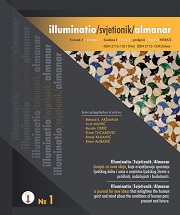SINTETIČKO I KONTEKSTUALNO IZUČAVANJU ISLAMA U OBRAZOVNIM USTANOVAMA ISLAMSKE ZAJEDNICE
SYNTHETIC AND CONTEXTUAL STUDIES OF ISLAM IN EDUCATIONAL INSTITUTIONS OF THE ISLAMIC COMMUNITY
Author(s): Ekrem TucakovićSubject(s): Islam studies, Higher Education , Sociology of Education, Sharia Law
Published by: Centar za dijalog - Vesatijja
Keywords: education; Islamic education – training; educational institutions of the Islamic Community; synthesis; synthetic approach; context; European context; context-'ulamā' (scholar);
Summary/Abstract: The educational institutions of the Islamic Community in Bosnia and Herzegovina have a long tradition of training in Islam that emerged and developed in different frameworks of public law and different cultural contexts. In the course of intensive discussions on the presence of Muslims in Europe and debates on solving the Muslim issue, and on models of educating imams and Muslim authorities, educational institutions of the Islamic Community have the opportunity to offer their own concept of Islamic education based on synthetic and contextual studies in Islam. The synthesis of the entire Islamic intellectual tradition will re-discover the authentic potential of the Islamic message in Islamic sources and tradition, a potential which may be an equal and credible partner in the contemporary Bosnian and European context. On the other hand, if it aspires to be relevant, to work in the European context Islamic education must inevitably focus on studying crucial issues of the European environment and offer satisfactory answers. The text of the Qur’an makes it known that context provokes even God’s direct response and intervention. Tafsir exegesis science includes chapters on the motives for publicizing certain Qur’an ayahs chapters and surahs sentences. The Divine Revelation does not ignore context; rather, it shows its great importance. Besides, Muslim intellectual tradition inherited the practice of applying religion in context. The Muslim educational system has long felt a pressing need to educate and profile the context-'ulamā' (scholar), experts who have both religious knowledge and the authoritative knowledge of context. In this respect, educational institutions of the Islamic Community should offer their own model based on their experience and authentic understanding of Islam and Islamic intellectual tradition, since such a model cannot be offered by Europe. This paper argues for the development of a concept which will be a proactive result of Bosnian Muslim intellectual self-awareness and universal responsibility for mankind, rather than being a passive adjustment of Islamic thinking and Islam to Europe, waiting for European instructions. In the shift from the present paradigm of adjustment to a new stage, the paradigm of promotion and recognition is necessary.
Journal: Illuminatio/Svjetionik/Almanar
- Issue Year: 1/2020
- Issue No: 1
- Page Range: 193-234
- Page Count: 36
- Language: Bosnian, English

